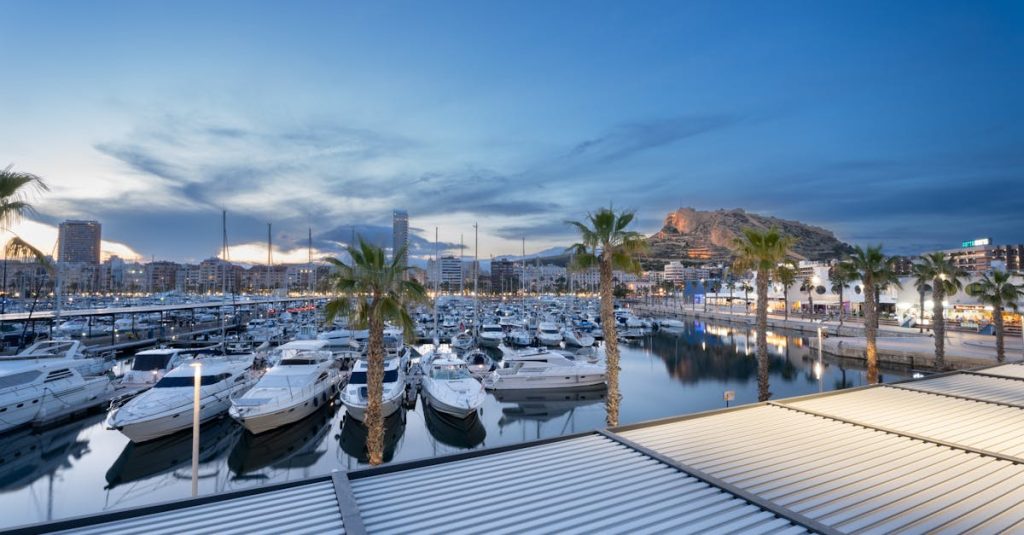Discover sustainable travel practices in Middle East tourism and learn how to explore the region responsibly. Join us as we delve into the essence of responsible tourism in the Middle East, aiming to inspire conscious travelers to make a positive impact through their journeys.
Sustainable Tourism in the Middle East

In recent years, the concept of sustainable tourism has gained significant traction in the Middle East region. With its rich history, diverse cultures, and stunning natural landscapes, the Middle East presents a unique opportunity for promoting responsible travel practices that benefit both the environment and local communities.
ecotourism in saudi arabia
The emergence of ecotourism in Saudi Arabia has sparked interest in making the country a sustainable tourism destination. Initiatives such as the Red Sea Project and NEOM aim to accelerate regenerative tourism practices in the region, focusing on preserving the natural environment while offering unique experiences to visitors.
community tourism in jordan
Jordan has established itself as a trailblazer for community tourism in the Middle East. By involving local communities in tourism activities, Jordan not only creates economic opportunities but also preserves traditional heritage and promotes cultural exchange.
striving for sustainability
Various stakeholders in the Middle East’s travel sector are actively working towards a more sustainable future. From airlines like flynas joining the UN Tourism Organization to destinations like Ras Al Khaimah receiving EarthCheck Silver Certification, the region is making strides in promoting responsible tourism practices.
sustainable trends in the middle east
- Integration of sustainability practices in aviation sector discussions
- Growth of eco-friendly accommodations like Envi Lodges
- Focus on climate crisis impact on travel industry
- Promotion of regenerative tourism in Saudi Arabia
- Emphasis on community involvement in tourism activities
As the sustainable tourism movement continues to evolve in the Middle East, travelers and industry players alike have the opportunity to contribute to preserving the region’s natural and cultural heritage for future generations.
Eco-Friendly Practices in Middle East Tourism

Middle East tourism is undergoing a transformation towards more eco-friendly practices in response to increasing awareness of sustainability and environmental conservation. From green initiatives in luxury resorts to governmental policies promoting responsible tourism, the region is embracing a more eco-conscious approach to travel.
Embracing Sustainable Hospitality
Leading the charge in the Middle East, several hospitality brands are prioritizing sustainability in their operations. Wyndham hotels, for instance, have implemented sustainable practices to reduce their environmental impact. The Waldorf Astoria Lusail Doha has also introduced new initiatives to advance eco-conscious hospitality, setting a benchmark for the industry.
Government Initiatives for Sustainable Tourism
Countries like the United Arab Emirates are actively promoting eco-friendly tourism through initiatives such as Dubai Sustainable Tourism’s mandate for hotels to comply with sustainability guidelines. Ras Al Khaimah has set ambitious goals to become a regional leader in sustainable tourism by 2025, highlighting the commitment to preserving the environment while enhancing the visitor experience.
Recognition for Sustainability Efforts
Dubai’s largest experience resort, JA The Resort, was recently honored with the top sustainability award, emphasizing the importance of recognizing and rewarding eco-friendly practices in the hospitality sector. The Arabian Travel Market (ATM) 2023 serves as a platform to celebrate and share innovations in sustainable tourism across the Middle East.
Digital Marketing for Sustainable Tourism
Efforts towards eco-friendly practices in Middle East tourism are further amplified through digital marketing tools. KSA is leveraging digital platforms to reach tourism goals and promote sustainable travel experiences to a global audience. Sustainability is becoming more accessible and affordable, as emphasized by John Pagano, fostering widespread adoption of environmentally conscious practices.
Growth of the Green Movement
The green movement in the global hospitality industry is gaining momentum, with a growing emphasis on environmental preservation and sustainable development. The integration of eco-friendly practices not only benefits the planet but also enhances the overall visitor experience, attracting responsible travelers seeking authentic and environmentally conscious destinations.
By prioritizing sustainability, the Middle East is paving the way for a more environmentally friendly and culturally sensitive tourism landscape, inviting travelers like you to explore the region’s natural beauty while minimizing your ecological footprint.
Community-Based Tourism Initiatives in the Middle East

promoting sustainable tourism in rural communities
Community-based tourism initiatives in the Middle East are paving the way for a more sustainable and inclusive approach to travel. Projects such as the Araku Pinery in Visakhapatnam and the US$2.4 million investment in rural communities in the West Bank are shining examples of how community-based tourism can maximize economic impact while preserving the environment and empowering local residents.
fostering green growth through sustainable tourism
Sustainable tourism presents an untapped opportunity for green growth in the Middle East. By focusing on community-based tourism initiatives, countries in the region can leverage their natural resources to attract environmentally conscious travelers and create long-term economic benefits. Embracing sustainable practices not only benefits the environment but also enhances the overall visitor experience.
conflict-sensitive climate adaptation in the middle east
Navigating natural resources in conflict zones in the MENA region is crucial for supporting community-based tourism initiatives. By promoting conflict-sensitive climate adaptation strategies, local communities can protect their environment while developing tourism in a sustainable and responsible manner. Initiatives such as those in the West Bank highlight the importance of balancing economic development with environmental preservation.
reviving ancient laws for sustainable tourism
In countries like East Timor, community-based tourism initiatives are playing a vital role in reviving ancient laws and customs. By tapping into their rich cultural heritage, these nations are able to offer unique and authentic travel experiences that appeal to a growing segment of eco-conscious travelers. Embracing traditional practices not only preserves local culture but also creates opportunities for economic growth.
ethical considerations in tourism development
While community-based tourism projects can bring about positive change, it is essential to consider the ethical implications of tourism development. Initiatives in ethnic minority habitats must strike a balance between economic prosperity and cultural preservation. Questions regarding the ethics of “slum tours” and their impact on local communities underscore the importance of responsible tourism practices in the Middle East.
recognizing excellence in ecotourism
Countries like Sri Lanka are being recognized for their outstanding ecotourism initiatives that prioritize community-based tourism. By promoting sustainable practices and environmental conservation, these destinations are setting a high standard for responsible tourism in the region. Awards and accolades serve to inspire other nations in the Middle East to follow suit and embrace eco-friendly tourism practices.
In conclusion, community-based tourism initiatives play a crucial role in promoting sustainability, preserving local culture, and maximizing economic benefits in the Middle East. By investing in green growth, fostering ethical tourism development, and recognizing excellence in ecotourism, countries in the region can position themselves as leading destinations for conscientious travelers seeking unique and meaningful experiences.

